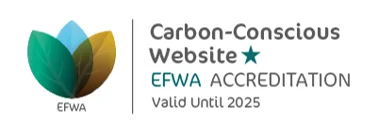I’ve been asked a couple of times recently about how to write good blog posts so I thought I would pull together some thoughts about this important topic. With so many blog posts available it is worth putting in some effort to ensure your posts are good quality as so many blog posts are poorly written. Yet, with some thought, a little planning and following some basic rules you can lift your posts above the noise and provide content that is worthwhile and easy to read and share.

Planning
Before you sit down to do any writing please do consider who you are writing for. This may seem obvious but I think many bloggers ignore this important step. You need to know who you are writing for so that you can provide content that is going to be of interest to your audience and so that you can address them in an appropriate way. You’re not always writing about topics that interest you – you write for your audience. Everything that follows depends on this step, so please don’t skip it.
The audience for this blog is the small to medium sized business owner who wants to create a powerful online presence so as to attract more business, more subscribers and more customers.
The next step is to decide the topic of the post you are going to write and draft a title. I started with a draft title of ‘Writing Blog Posts’ but I soon realised that this was a rather weak title. ‘Write Good Blog Posts’ would be OK but I thought ‘How to Write Good Blog Posts’ would be more appealing.
Some blogs tend to keep all their titles very similar which is something I don’t like as it is too formulaic. You might have seen posts entitled ‘7 Steps to….’ or ‘5 Ways to…’. These are attractive but too many of that style cheapens the content in my opinion and so undermines your brand.
So, come up with a strong title but which is not too long otherwise it will get cut off when displayed in the search engines. Bear in mind that the title of your website is usually appended to your blog post title. The total number of characters should not exceed 150, including spaces.
My next step is to start planning the content. I might use a mindmap or I might just write down some headings. I will then do some research to see what others have written about this topic and I will aim to offer something new rather than just rehashing other people’s words.
It’s important that the content is planned and organised because
- It’s easier to write
- It’s easier to read!
Language
Unless you’re writing an academic or technical blog, it’s best to keep the language fairly straightforward. I don’t mean you should write for 5 year olds (unless that’s your audience!) but don’t go in for long words and complex grammar. It’s not appropriate in blog posts where people usually want to read through quickly.
Since you know who your audience are you can adjust your writing so you use the vocabulary and phrasing that the people you are writing for would tend to use. This helps generate rapport between you and your reader.
In addition, I would suggest you write in the first person singular, again as this reinforces the personal connection between you and your reader. Consider the tone of voice you use as well. Be personable, be approachable, be imperfect, be yourself. You don’t have to pretend to be an expert if you’re not – just be honest and clear. By all means offer opinions, thoughts, viewpoints, suggestions.
Content

The first paragraph of your blog post is crucial. You should provide a strong introduction to your topic which draws the reader in and clearly shows them how they will benefit from reading more. Making a good first impression is as important in a blog post as it is in person.
Paragraphs are better if they are short. 2 or 3 sentences will be fine. I know this is not how many of us were taught to write at school but shorter paragraphs are easier to read and so make it more likely that your audience will progress through your blog post which you have taken time and effort to write.
There’s no maximum word count for a blog post but I would say that there is a minimum which is 300 words. Ideally it would be more than this – 500 or more words is good. In one sense the more the better because then the search engines will have greater confidence in the topic of your post are so are more likely to rank the post highly for relevant topic phrases. On the other hand, if you’re going to write good blog posts, your content must remain interesting to readers. Don’t just ramble on for the sake of it. If 400 words is what it takes to cover your topic in an interesting an engaging way, then publish 400 words.
Always write a meta-description for your post as this is what will (probably) appear in the search engines under the title of your post. Make sure that this short message (160 characters or less) is compelling. By compelling I mean that it is written in a way that makes people want to click on your result in the search engine and read the full post.
Formatting
Formatting the content properly makes it much easier to read. Long uninterrupted pages of text are sure to cause readers to get bored so break up longer posts (and even shorter ones) with sub-headings. Use bullet points (but sparingly) and highlight the most important key words and phrases so that people who will just scan your post can get the gist and focus on sections that are relevant to them.
Include at least one suitable image (more if the post is longer). Suitable means that the image illustrates your points and/or conveys the feeling of your post. It’s also important to include images to break up the text for readers and to add some visual interest.
If your post is referencing data or work of other people cite those references and link to them. It is also useful to include links to other relevant work (probably some of the sources you used in your research phase) so readers who are particularly interested in the topic can dig deeper.
Make use of categories if they are available on your blogging platform as these will help people find your posts in the future when they may be looking for something specific. A given post can be in more than one category.
Have a clear concluding section of your post. It doesn’t have to draw a firm conclusion but it should bring together the material you have written about. This is a good place to encourage readers to comment on what you have written and to request their feedback. Ask a question of your readers.
Finally, make sure there are some social sharing buttons at the bottom of your post that make it easy for readers to share your content with their connections.
Conclusion
So, to conclude, I would say if you’re going to write good blog posts you must write for your audience. Write something that they will find interesting and make it easy for them to read by good formatting. Having spent this time crafting your post and then hitting Publish please don’t stop there but promote your post using whatever social platforms are relevant – Twitter, LinkedIn, Facebook, Google+ etc. What other tips do you have about how to write good blog posts?
Further Reading
There are lots of articles on how to write good blog posts, as you might imagine. Here are posts from three sites which I think are worth reading.
